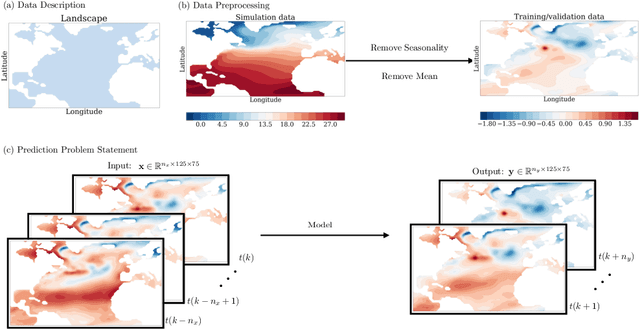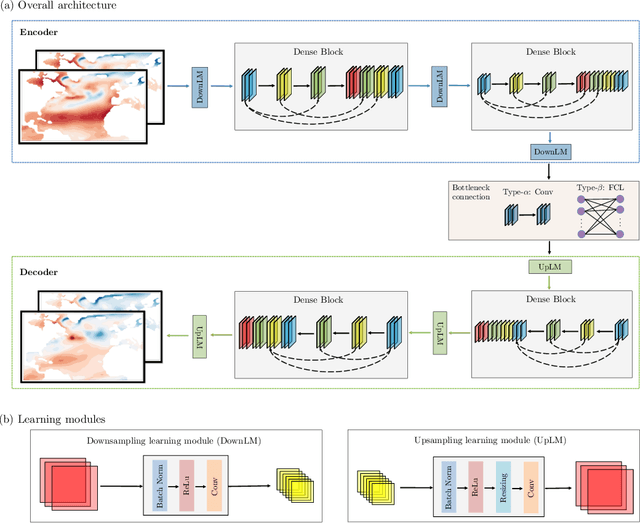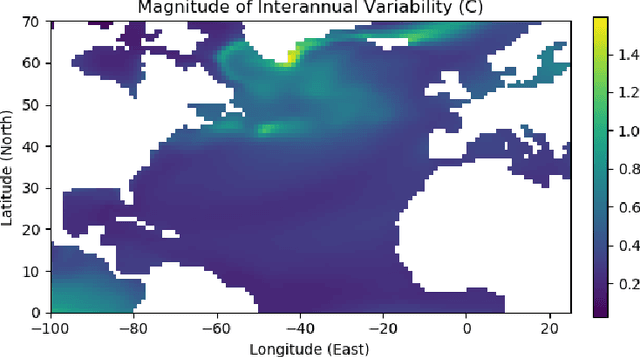A Bayesian Deep Learning Approach to Near-Term Climate Prediction
Paper and Code
Feb 23, 2022



Since model bias and associated initialization shock are serious shortcomings that reduce prediction skills in state-of-the-art decadal climate prediction efforts, we pursue a complementary machine-learning-based approach to climate prediction. The example problem setting we consider consists of predicting natural variability of the North Atlantic sea surface temperature on the interannual timescale in the pre-industrial control simulation of the Community Earth System Model (CESM2). While previous works have considered the use of recurrent networks such as convolutional LSTMs and reservoir computing networks in this and other similar problem settings, we currently focus on the use of feedforward convolutional networks. In particular, we find that a feedforward convolutional network with a Densenet architecture is able to outperform a convolutional LSTM in terms of predictive skill. Next, we go on to consider a probabilistic formulation of the same network based on Stein variational gradient descent and find that in addition to providing useful measures of predictive uncertainty, the probabilistic (Bayesian) version improves on its deterministic counterpart in terms of predictive skill. Finally, we characterize the reliability of the ensemble of ML models obtained in the probabilistic setting by using analysis tools developed in the context of ensemble numerical weather prediction.
 Add to Chrome
Add to Chrome Add to Firefox
Add to Firefox Add to Edge
Add to Edge